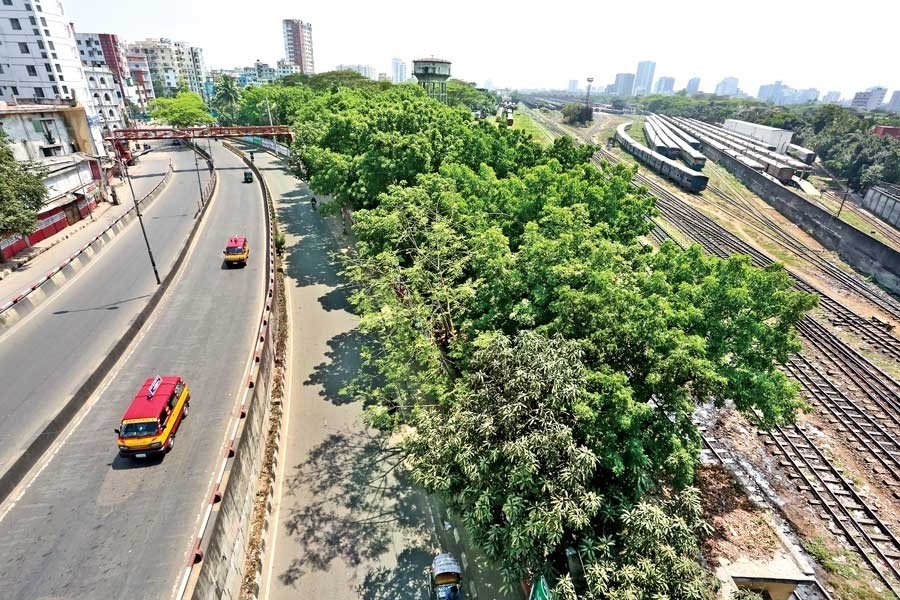
Published :
Updated :

The 10-day nationwide shutdown in force since Thursday has virtually made bustling Dhaka a city of ghosts, affecting lower-income groups even as it is crucial to battling the deadly coronavirus.
The city dwellers, usually, in large number crowd shopping malls, restaurants and recreational spots on weekends giving life to the capital's economic wheels.
But things were unusual on Friday. All business establishments, small or big, were shut except for drug stores, groceries, and kitchen markets as people preferred to stay indoors to shield themselves from the infection of highly-contagious virus. The Covid-19, a pneumonia-like illness caused by the virus strain, has so far infected 48 people, including five deaths in Bangladesh.
General people and both private and public transports were rarely seen even in the busiest parts of city, which were isolated from other parts of the country because of the holidays declared by the government until April 4.
An insignificant number of people, wearing safety kits like masks and gloves, were seen queuing up to get into drug and grocery stores to buy emergency and essential items while most of the streets were almost empty with the presence of security personnel to ensure order and social distancing.
On some streets, police were found spraying germicide through its water cannons to make roads microbes-free.
The busiest places of the city during weekly holidays like New Market, Shahbagh, Karwan Bazar, Mirpur Zoo, Dhanmondi, Hatirjheel lake area, Kamalapur Railway Station, Sadarghat Launch Terminal and bus terminals were also found empty.
"This street (Malibagh to Badda) was always packed with transports and pedestrians even during major holidays. But it is almost empty this time. It's like a ghost city," Sirajul Islam, a fish trader at Rampura kitchen market told the FE.
He hailed people's consciousness not to go outside under the prevailing circumstances, but he expressed his concern about his survival in the city if this kind of situation prolongs.
A 16-year-old boy named Junayed Hamim, who got out home to buy some medicines for his family, told this correspondent that he bought saline, calcium capsules and pain killers for his family members.
"I've never seen such a city scene in my short life. It's scary as people are rarely seen," he added.
The less movement of people and fewer economic activities have started hurting the bread and butter of the people of lower-income groups, whose survival largely depends on the daily income.
Halim Miah, a rickshaw-puller living at Khilgaon, said the virus-induced fear came as a serious blow to his five-member family, even though none of them is infected by it.
"My earning has been cut drastically. I used to earn Tk 700 a day on average carrying passengers. Now, it's 3:30pm, but I earned only Tk 180. Yesterday, my earning was only Tk 250," he said. "What will happen people like us if the situation like this persists," he said on a note of frustration.
To stem the spread of deadly virus, the government on March 23 drew up a 10-point instruction, including a 10-day general holiday urging citizens to stay home, except for emergency needs.
Soon after the announcement, a large number of city dwellers left the capital for village homes risking their lives, which has forced the government to halt all modes of transportation from and into the capital.
jubairfe1980@gmail.com


 For all latest news, follow The Financial Express Google News channel.
For all latest news, follow The Financial Express Google News channel.